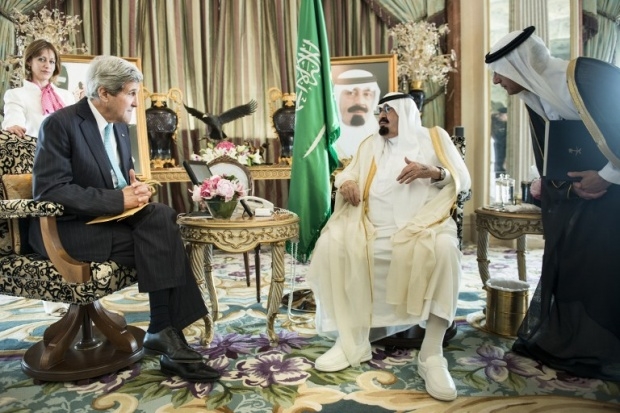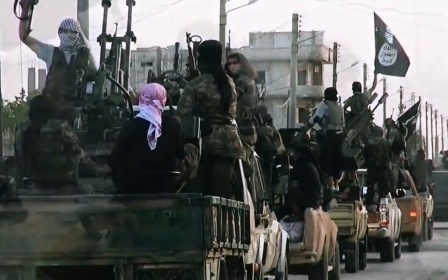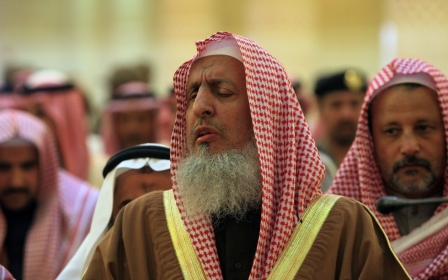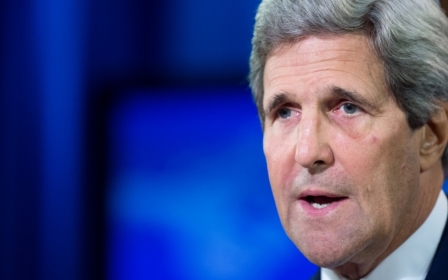Saudi Arabia’s U-turn on Islamic radicalism - political irony or Greek tragedy?

The cradle of Wahhabism - an ascetic and radical interpretation of Sunni Islam - Saudi Arabia has often been understood as the nurturer of radical religious thoughts, so much so that many analysts and scholars have actually blamed the rise of Islamic terrorism on the kingdom, arguing that Saudi Arabia’s Wahhabis have not only fanned sectarianism but also promoted Jihad as a religious paradigm, a new expression of one’s religious devotion as a mean to assert its control over the Middle East.
In a report for Global Research published in January 2014, Professor James Petras alleged that it is al Saud royals’ allegiance to Wahhabi Islam which gave birth to radical groups such as al-Qaeda and Islamic State (IS). He wrote, “The ruling elite finances the most fanatical, retrograde, misogynist version of Islam, ‘Wahhabi’ a sect of Sunni Islam.”
The narrative of jihad
While Saudi Arabia has always categorically rejected claims that its leadership has indeed contributed, financed and protected terror radical groups across the Islamic world and, more specifically, the Middle East, it has been increasingly difficult to differentiate in between Wahhabi clerics’ rhetoric in the kingdom and terror militants’ narrative in Syria and Iraq, especially since both preach intolerance and call for harsh punishments against those they view as apostates of Islam while revelling in the concept of jihad (holy war).
As IS - formerly Islamic State of Iraq and the Levant, ISIL - as it chose to rebrand itself last June, following its expansionist campaign in northern Iraq, has swept through the greater Levant, taking, quite literally, no prisoners, since its militants have the habit of murdering, pillaging and ravaging all which stand in their way, troubling parallels and even patterns have emerged in between terror militants and Saudi-sponsored Wahabbi preachers. How can we forget the vehemence leading Sunni clerics called for global jihad against Syrian President Bashar al Assad and his Shiite backers, namely Iran and Hezbollah? Such a stance has been mimicked by IS and al-Qaeda.
“What is happening to our brothers on Syrian soil, in terms of violence stemming from the Iranian regime, Hezbollah and its sectarian allies, counts as a declaration of war on Islam and the Muslim community in general,” declared Mohammed Hassan a prominent Egyptian cleric in June 2013, speaking on behalf of 70 Sunni organisations, all affiliated to Saudi Arabia.
It is such cries for Jihad that have fuelled IS’s fire and sold thousands of men and women its terror narrative. Whether or not Saudi Arabia did indeed willingly partake in the creation of IS, it is evident that it contributed to its inception by entertaining the idea of a reactionary Sunni Islam.
After all, IS’s very inspiration, its quest for the establishment of an all-mighty Islamic State over the nations of the world stems back from Wahhabi Islam’s core ideology. Both share the same hatred for Shia Islam, Iran and all faith denominations that do not fall within the realm of Sunni Islam.
Viewed from a distance, IS and Wahhabis have more in common than Saudi Arabia cares to admit. The extremists of all extremists, IS militants, have merely pushed the envelope further than Saudi Arabia ever dared, or wanted to for that matter.
But if Saudi Arabia was willing to tolerate radicalism in the Middle East in order to rid itself of a few enemies and assert its hegemony over the region by creating a buffer to Iran’s political and ideological traction, it did not intend for IS to become the monster we all have learned to fear.
Having woken up to the threat IS poses not only to the immediate MENA region – Middle East and North Africa – but to the world, Saudi Arabia has been actively denouncing Islamic radicals as apostate of Islam, calling for all powers to unite and commit to their destruction.
Mortal threat
Earlier this month (September), Crown Prince Salman, deputy premier and minister of defence, travelled to France to meet with President Francois Hollande in a bid to devise a common strategy against what Saudi Arabia now describes as a mortal threat to the world.
“Saudi Arabia realised the danger posed by terrorism to the international community from early on,” said Prince Salman in an address to French officials.
A few days later, the Arab League issued a statement in which members expressed their common rejection of Islamic radicalism. Nabil Al Araby, the secretary general of the Arab League told the press, “We have endorsed international action against the radical Islamic State and vowed to take all necessary measures to confront the corrupt, immoral militants who now control large parts of northern Iraq and Syria.”
Under Saudi Arabia’s counter-terror impetus, other Gulf monarchies have too set in motion their anti-IS war machines, as if suddenly made aware of the presence of nefarious forces in their backyard.
On the same day the Arab League announced its commitment to fighting terror, the Emirati Foreign Affairs Ministry expressed its “deepest concerns and strongest condemnation of terror acts and criminal practices of violent extremists”.
Just as Saudi Arabia disavowed the Muslim Brotherhood in the wake of now-deposed Egyptian President Mohammed Morsi’s political victory on account the group had become radicalised, the kingdom has now declared war on radical Islamists across the region. From Libya to Riyadh, al Saud has offered its support and chequebook to those in opposition of Islamists.
While Saudi Arabia plays catch up with the very elements its religious school of thought gave birth to, trying to control the plague it realises it helped unleash on to the world, many wonder if it is not the son rather who will strike down his father, so mighty his reach has become.
-Catherine Shakdam is a political analyst/commentator for the Middle East.
The views expressed in this article belong to the author and do not necessarily reflect the editorial policy of Middle East Eye.
Photo: Saudi King Abdullah bin Abdulaziz Al-Saud (R) and US Secretary of State John Kerry in Jeddah (AFP).
New MEE newsletter: Jerusalem Dispatch
Sign up to get the latest insights and analysis on Israel-Palestine, alongside Turkey Unpacked and other MEE newsletters
Middle East Eye delivers independent and unrivalled coverage and analysis of the Middle East, North Africa and beyond. To learn more about republishing this content and the associated fees, please fill out this form. More about MEE can be found here.





